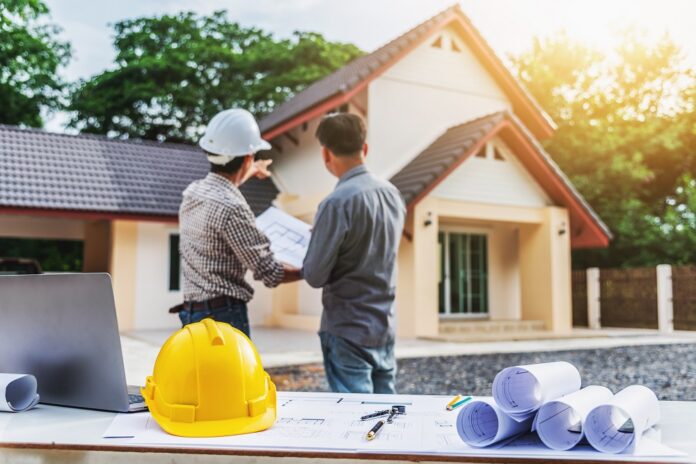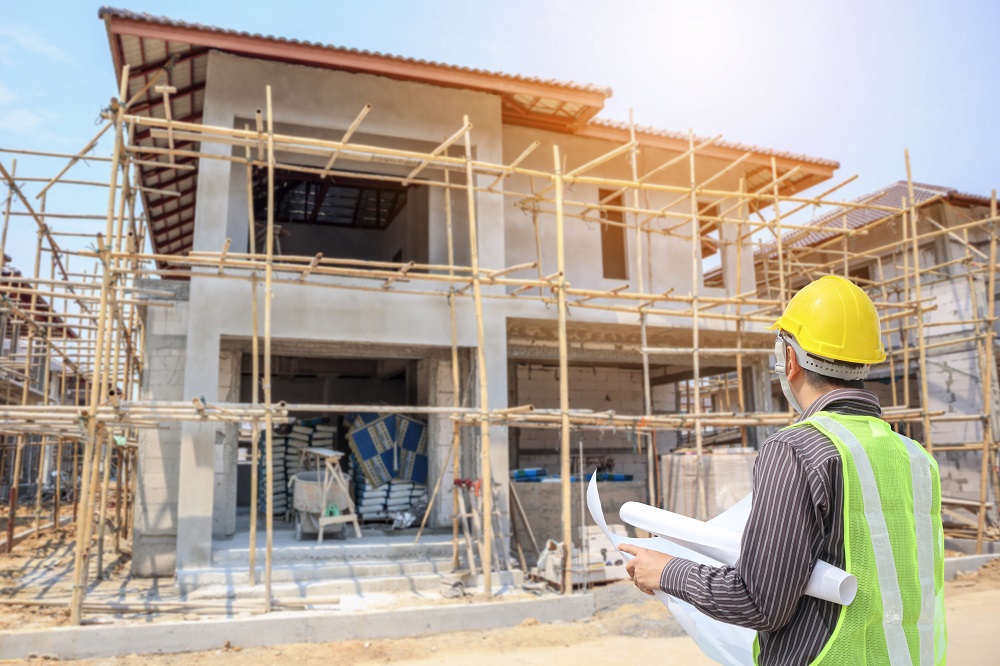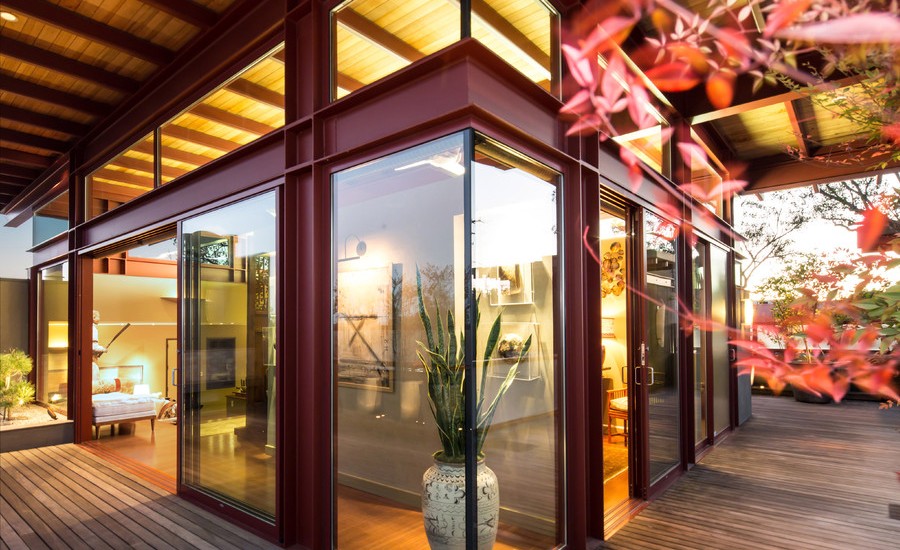The process of building a new home can make you feel different kinds of emotions. It can be thrilling and daunting at times. On the contrary, the building process may seem commonplace to your builder or contractor, so you must become proactive in the entire process of your dream home project. In comparison to buying an existing home, building a new house can save you up to 15%, with an average cost of nearly $300,000 these days.
However, it’s understandable why many people go for the home-buying way instead because of the lack of knowledge regarding the entire home building process. You may have questions like these: How does buying new compare to upgrading? Is new construction even the right choice for you? Stop worrying and read along, as this article will help you through your predicament. You’ll need to understand all the details of the home-building process if you’re a novice in this field. The last thing you want to do is start the process and then change your mind soon after.
You must know and consider these factors when constructing your new home:
1. Assess Your Budget
Do some calculations before starting the building process to determine if you can afford to build your dream home. There are tools that are usually available on most house plans which provide a cost estimate based on the area you’re building in. These include construction costs, funds for a down payment and a hedge fund, and many other calculations.
Purchase the house plan and apply for financing after determining whether you can afford it. Construction loans differ from regular home mortgages. First, it’s necessary to obtain a line of credit for home construction that will be used as the financial source to pay your suppliers and subcontractors. After the house is constructed, a residential mortgage will be needed to repay the construction loan.
2. Research For Prospective Builders
Think of high quality when choosing the right builder to hire like Kimball Construction. A builder with the lowest prices isn’t the best choice because you might not question why the results are of low quality. Certainly, builders must adhere to local building codes, but choosing the right builder is more complicated than that.
You can determine if a builder has any complaints against them by checking them out on the Better Business Bureau. You can also source out information from other sites and even social media.
The best way to review a builder’s reviews and social media profiles is to pay attention to how they communicate with previous homeowners after closing. If there are any issues with the builders’ work, they will contact buyers and resolve them. This will tell you how responsible they are for their quality of work.
3. Check The Builders’ Reputation And Past Developments
The number of builders on the market is vast. However, not all of them are credible and reliable. Make sure that the builders you choose are reputable. Find out if a builder has a reputation for quality work if they exemplify professionalism towards clients and all other details. You can search these reviews online or from loved ones and friends.
Look for a built-up area where a good developer offers designs you prefer, and you can even opt to buy their land. Also, you can invest in a plot of land where you want a house built and look for a reputable builder to do so.
Consider what’s most important to you when choosing the first option. What are your priorities exactly? What amenities are you looking for in a neighborhood? You may want to ensure that your children will attend an excellent school system near your home. You might prefer to live where transportation is accessible.
Get out of your car and walk around a developer’s neighborhood, and see how the place feels for you. Meet with local residents and inquire about their experiences with the developer. It would be best if you asked whether the complex has a homeowners’ association. Get to know the rules and fines involved, as they can be substantial.
4. Decide On Your New Home’s Style
It would help if you chose a house style for your family that will be practical in the future. If you’re considering adding another family member, or if you’d like your retired parents to come to live with you, you should choose a bigger home. Typically, a builder will offer several different floor plans for you to choose from. You can decide how many floors, bedrooms, and bathrooms that the house has, and the square footage.
5. Decide On Your Home’s Details
Choosing a style for your home is followed by selecting the finishing touches from a builder’s available options. The basics, including paint color, cabinetry, lighting fixtures, countertops, and flooring, are all available for selection.
Consider standard options if you’re looking for the cheapest choices. These would mean going for neutral paint colors like white, beige, or gray. Choosing ordinary carpeting is also among the most affordable package, as well as standard lighting fixtures. If, for instance, you want more than all these, then those will entail additional price or will constitute a different package for your home’s details.
6. Assess The Resale Value
The house you’re constructing now maybe your favorite, but you never know what’s going to happen in the future. In light of that, you ought to consider its resale value, just if you decide to move out in the future. Add only enough upgrades so that your home doesn’t overprice for the neighborhood. Also, stay away from anything too unique or different. If you’re considering installing new features, consider whether they’ll likely be appealing to others.
7. Think Of Upgrades
Choosing a home builder that offers upgrades is an excellent way to customize your home if you’re unhappy with the standard features. Nevertheless, these improvements will likely raise the price of your house. It’s essential to be mindful of what you choose. An agent can be helpful here. While touring the design center, you may notice a feature you like and want to upgrade. You should ask the agent if the upgrade would be worthwhile and if the investment would be calculated into the sale price.
In the design center, many items aren’t guaranteed to be 100% returnable when sold. You may enjoy the pristine conditions of high-end cabinets and rare granite counters, but it doesn’t mean the houses will sell for more at resale based on what the homes in the neighborhood sell for. These upgrades aren’t commonly found in other properties, so your property won’t sell higher because of these features. Moreover, if you want your home to have some upgrades without selling out hefty amounts of money, you can make use of your handy skills and install the updates yourself!
8. Stay Eco-Friendly
There are many reasons to build an eco-friendly home. You become self-sufficient, save money, and you can have a home with better quality. If you’re planning on building a new home, make sure you maximize its energy efficiency. It’s best to have windows facing south so that you can leverage the sun’s energy to heat your home. To minimize heat loss, bathrooms, laundry rooms, and garages should be situated on the southern side of your home. It’s essential to choose the proper insulation, HVAC systems, and energy-efficient appliances, as well as high-quality sinks, faucets, and bathtubs.
9. Have Your Home Inspected During The Construction Process
When you buy something brand new, you might expect it to be as perfect as it can be. But that’s not the case at all. No matter how good of a builder you hire or how good their reputation is, you’ll still encounter some issues. This is why it’s paramount to have a home inspector check your home while it’s being constructed because they know how the process works.
During the building process, home inspectors examine the home several times. After the frames are put up, they take it through once. A second time, the inspectors will inspect the house after the builder declares it complete and help them set up a punch list of tasks to be performed before the project is officially finished.
10. Review All Warranties
Your home should come with a warranty. In the construction of your new home, warranties play a significant role, and you should know what kind of warranty your home will have. The warranty options offered by builders may be:
-
Implied Warranty
Implied warranties will cover workmanship defects if they affect your home’s quality and safety. In general, these warranties cover ten years but have vague contract details.
-
Express Warranty
The express warranty specifies which problems will be fixed by the builder. It will determine how long the warranty lasts and how homeowners can go through with their disputes if any arises.
Conclusion
In this article, we have discussed the basics of house construction. There may be some details and building codes and rules that weren’t mentioned. But all the things listed above are essential. The home building process takes knowledge, patience, and effort. But at the end of it all, everything will be worth it once you’re looking at the fruits of your labor: your dream home.



















